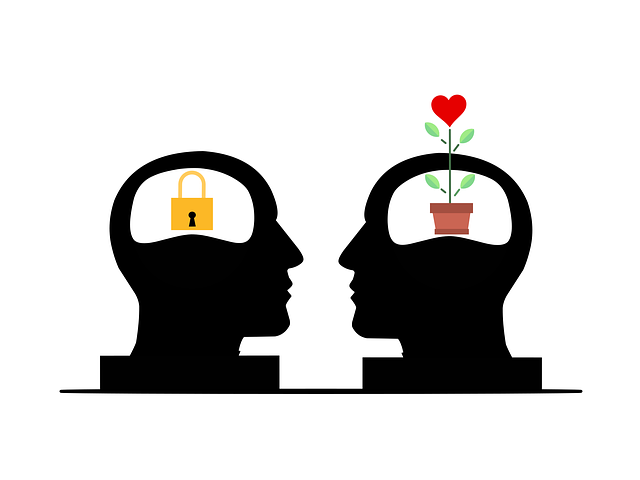Time management counseling leverages stress relief therapy techniques like mindfulness, cognitive behavioral therapy (CBT), and task prioritization to reduce time-related anxieties, enhance productivity, and promote work-life balance. By identifying and eliminating unproductive habits, organizing tasks with tools like the Eisenhower Matrix, minimizing distractions through mental practices like meditation and deep breathing, adopting "time blocking" and scheduling, and building self-discipline, individuals can improve their time management, increase productivity, and ultimately reduce stress levels.
“Unleash your productivity with the power of time management counseling! In today’s fast-paced world, efficient time utilization is key to achieving goals. This comprehensive guide explores effective strategies, from identifying time-consuming activities to implementing structured scheduling.
Discover the benefits of stress relief therapy tailored for time-related anxieties. Learn systematic task prioritization, create a distraction-free environment, and build self-discipline to conquer procrastination. Embrace these techniques for a more balanced and productive life.”
Understanding Time Management: Identifying Time-Consuming Activities

Effective time management is a valuable skill that can significantly reduce stress and improve overall well-being. Understanding your current habits and routines is the first step. Individuals often spend a considerable amount of time on activities that may not align with their priorities or goals. Identifying these time-consuming tasks, such as excessive social media scrolling, unproductive meetings, or procrastination, is crucial. With this awareness, one can begin to prioritize, delegate, or eliminate these activities, fostering a sense of control and balance.
Counseling sessions for time management often involve exploring the root causes of poor time allocation. Stress relief therapy techniques, such as mindfulness and cognitive-behavioral strategies, are employed to help individuals gain clarity and focus. By learning to manage their time efficiently, folks can reduce the strain on their mental health and create a healthier, more fulfilling lifestyle.
Stress Relief Therapy: Techniques to Reduce Time-Related Anxieties

Time management counseling often incorporates stress relief therapy techniques tailored to alleviate time-related anxieties. These methods help individuals recognize and challenge their underlying fears around deadlines, overcommitment, and productivity pressures. Through mindfulness practices, such as deep breathing exercises and meditation, clients learn to calm their minds and reduce the physiological effects of stress.
Cognitive behavioral therapy (CBT) is another powerful tool in stress relief therapy. CBT assists individuals in identifying and changing negative thought patterns associated with time management. By challenging irrational beliefs about time scarcity and improving self-regulation skills, CBT empowers people to make more realistic plans and maintain a balanced approach to their daily schedules.
Prioritizing Tasks: A Systematic Approach for Efficient Time Utilization

Prioritizing tasks is a fundamental skill in time management counseling, offering a systematic approach to optimize efficiency and reduce stress relief therapy needs. It involves evaluating the importance and urgency of each task, ensuring that efforts are focused on what matters most. A simple yet effective method is to use tools like the Eisenhower Matrix, which categorizes tasks into four quadrants: urgent and important, important but not urgent, urgent but not important, and neither urgent nor important. By organizing tasks in this manner, individuals can prioritize their efforts, delegating or eliminating less critical activities to free up time for more meaningful pursuits.
This strategic task prioritization prevents the overwhelming sensation of being submerged in a sea of to-dos, fostering a sense of control and enhancing overall productivity. It encourages individuals to differentiate between true priorities and time-consuming activities that may not yield significant results. By adopting this systematic approach, people can achieve more in less time, leading to improved work-life balance and reduced stress levels—a key benefit of effective time management counseling.
Creating a Productive Environment: Eradicating Distractions

Creating a productive environment is an essential step in effective time management counseling. In today’s digital age, many individuals struggle with distractions that hinder their focus and productivity. Eradicating these distractions is crucial for maximizing efficiency and minimizing stress. Simple yet powerful measures like designing a dedicated workspace free from clutter and potential temptations can significantly enhance concentration.
Stress relief therapy techniques can play a pivotal role in this process. By incorporating practices such as mindfulness meditation or deep breathing exercises into daily routines, individuals can learn to manage their response to distractions. This mental fortitude allows for better focus on tasks at hand, thereby improving time management skills and overall productivity.
Time Blocking and Scheduling: Strategies for Structured Days

Time Blocking and Scheduling are powerful strategies for managing your day effectively, providing a structured approach to reduce stress and enhance productivity. By dividing your day into dedicated blocks for specific tasks or activities, you gain better control over your time. This technique involves creating a schedule that allocates time slots for work, leisure, self-care, and other commitments, ensuring a balanced routine.
Imagine your day as a canvas where each block represents a different color, representing various activities. This visual approach helps in organizing tasks, minimizing distractions, and preventing overloading. With time blocking, you can schedule focused periods for deep work, break up monotonous tasks with leisure activities, and even allocate specific times for relaxation and stress relief therapy. It encourages prioritizing self-care, ensuring that commitments don’t overwhelm your mental well-being.
Building Self-Discipline: Overcoming Procrastination and Staying Motivated

Building self-discipline is a key aspect of effective time management, especially in overcoming procrastination. Many individuals struggle with putting off tasks, which often leads to increased stress and anxiety. Stress relief therapy techniques can play a significant role in fostering self-control. Through mindfulness exercises and cognitive behavioral therapy, individuals learn to recognize triggers for procrastination and develop strategies to stay focused and motivated.
By setting realistic goals and breaking them down into manageable steps, one can create a structured plan that reduces the feeling of being overwhelmed. Regular practice of self-discipline, combined with stress management techniques, helps to maintain momentum and ensures tasks are completed efficiently. This not only improves time management but also boosts overall productivity and well-being.
